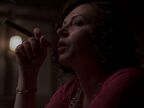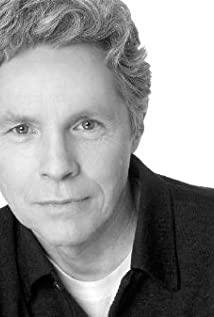1. Downloaded before, it takes up a lot of space, so I just watched it. There are many awards for this drama, see the link below
http://www.chezaiyi.cn/lifeculture/120639.html
2. It is a drama that you can watch fast forward, so the plot is all you can guess. It is recommended to watch it fast forward, otherwise it will be a waste of time. However, the details of the show, such as the service, the road, and so on, still feel very attentive. According to my insight, it can be described as a high-fidelity restoration.
3. Gangs, liquor, sex, brothels, casinos, hand-cranked projectors to watch porn, power and money transactions, the evil elements are the same, every episode has naked women can at least see naked breasts. In the 1920s, the world was not like Shanghai, but Shanghai was full of gangs, smuggling, and crimes like the world. It was an era of violence, chaos, and full of corpses but full of imagination. This was also the unique charm of Shanghai in that era.
4. The woman in this show is a real woman. You can do anything for money, exchange anything, and do anything. Except for Margaret who was somewhat pretentious at the beginning (it didn’t happen later), the other women are all hot What pure. But people are extremely curious and greedy, and women are no exception. You give her money and she wants romance, you give her romance, she wants money, you give her romance and money, she wants to get married and have children, and you give her For her marriage and children, she wants you to have no secrets and company, you give her your own secrets and company, she wants your money, and you give him money, she wants romance, cycle and endless. A woman who has a child cares about the child, and anyone can raise it. A man’s gift is a self-recommendation letter from a woman, and the dialogue between mistresses is an expression of the view that a man is a walking genitalia. Margaret, also known as Mrs. Schroeder, was not Nicky's mistress at the time, and the conversation with the senator in the fourth episode of the first season was very interesting. He said: I hope you are not a female suffrageist. She said: Not quite. He said: Another female suffrageist. She said: Women in my country already have the right to vote. In fact, most civilizations Women in the country have given this right. He said: In this country we only want to protect women from the suffering of real life. She said: By vetoing their meaningful right to participate? He said, I'm sorry to see you like this. She said: It's not just me, sir, most women want the right to vote. As you know, if you suppress their deep desires, they will find ways to suppress your desires. He said: What is the desire for? She said: wine. A very interesting conversation.
5. A conversation between Margaret and Nicky in the ninth episode of the first season is quite interesting. He said: If we can only choose good people, then there will be no leader to say. She said: Since you are not a good person, how can you be a leader? He said: Valuable, to those who support him.
6. I saw the penultimate episode of the first season and realized that Tommy’s father was a brigadier general
7. In the last episode of the first season, the 12th episode, Nicky said: We all have to choose to commit some sins in life. People like Nicky can and can make good use of everyone he meets, can talk and lie, have a strong desire to control, decisive, smart, cold, and very feminine. In the last episode of the first season, Margaret missed her mistress's wealthy life, and took the initiative to go back to Nicky, hoping to restore the old. Um.
8. The emergence of Prohibition in the United States is related to many factors such as American religion, politics, and social culture, as well as the background of World War I at that time. The concerns of the founders of the United States became more and more apparent at the end of the nineteenth century and the beginning of the twentieth century. Simply put, the Prohibition Act is a social and cultural campaign jointly promoted by Puritans and religious organizations, prohibition organizations, progressive movements, and feminist movements to solve social problems such as high crime rates, domestic violence, and immigrant conflicts. sports. There are three main backgrounds:
First, it can be said that the Puritans established the foundation of America and American culture. The Puritans have always advocated frugality and little desire and opposed luxury and indulgence. Wine is not only an important symbol of luxury and indulgence, but also the criminal problem caused by alcohol has aroused strong resentment from the Puritans. In their view, wine is simply the "source of corruption." Moreover, at the time, the largest consumer group of alcohol was immigrants represented by blacks, Jews, Asians and other people of color, as well as white immigrants from Northern Europe, Eastern Europe, and Southern Europe. These people generally had very little income and had little cultural quality. Low. White Puritans felt that their traditional culture was under siege and believed that immigration was the main source of social problems. For traditional white Americans, Prohibition is a movement to assimilate values from foreign cultures. It is worth mentioning that the 3K Party of the United States also supports prohibition, because this is not only a good business, but also has a distinctive xenophobic and anti-immigration color.
Second, at the end of the 19th century, the United States just ended its industrialization, and social changes have been drastic. A series of social problems have arisen: the gap between the rich and the poor caused by the unfair distribution of wealth has increased, the conflict between labor and capital has intensified, and the social conflicts caused by the influx of immigrants have increased day by day. , Wealth and power are constantly concentrated, especially the corruption of wealth dominating power and power-to-money transactions is very serious, and the growth of material desire impacts the traditional social morality dominated by Puritan culture. This far-reaching progressive movement was led by the middle class. To simply summarize progressivism is to advocate strengthening the federal government's supervision of social and economic activities in order to promote the overall improvement of society. Driven by progressivism, a large number of moral legislation, social legislation, and control legislation have emerged. The promulgation of the prohibition on alcohol is an important achievement of the progressive movement.
Third, the 14th constitutional amendment passed by the United States in 1868 gave blacks the same voting rights as whites, but refused to give women the right to vote as a whole. This means that women groups who have made outstanding contributions to the abolition of slavery and the black equal rights movement have not received their due rights and political respect. So feminists put their efforts into the prohibition movement. They claimed that alcoholism is the main cause of domestic violence, and advocated that men’s life style and behavior should be changed through prohibition. Alcohol prohibition is also to protect the children’s growth environment and enable women to be in the family. Here has an equal status with her husband. The Christian Women's Temperance Federation was the largest women's organization in the United States at the time, and it pushed the prohibition to a climax. The Prohibition Movement is a symbolic movement for women to once again influence the direction of American politics. It further lays the social and organizational foundation for women to win the right to vote. It is a military parade in which the American feminist movement demonstrates its political power. With the participation of men in World War I, the status of female workers has become increasingly important. On August 18, 1920, more than half a year after the national alcohol prohibition took effect in the United States, the 19th Constitutional Amendment to the U.S. Constitution gave American women the right to vote. However, it should be pointed out that white women have basically obtained the right to vote through the bill. However, in practice, especially in the southern regions where discrimination against blacks is serious, black women are required to read the constitution before they can vote, which makes many illiterate blacks. Women suffer discrimination. Even white women did not sympathize with black women at the time. It is reported that before successfully fighting for the right to vote, Alice Paul, the leader of the white women’s organization, once told the black women’s organization that “black women’s right to vote is not important”, and neither Willing to cooperate and fight with black women. As a result, the voting rights of black women were not officially guaranteed until the U.S. Congress passed the Voting Rights Act in 1965. It has been 45 years since 1920. In 1973, the U.S. Congress proposed to designate August 26 as Women's Equality Day, which was officially signed and approved by the then U.S. President Nixon. So far, the American women's equality movement for more than 100 years has come to an end.
9. The prohibition movement in the United States is divided into three stages:
The first stage is from the Prohibition Organization's call to two-thirds of the state legislation prohibiting alcohol. As early as the early 19th century, some social figures in the United States began to call for the prohibition of the production and consumption of alcoholic beverages in the United States, and the establishment of a prohibition organization. In 1846, Maine became the first state to pass a Prohibition Act. In 1869, the "Prohibition Party" was also established. Social groups and organizations such as the "Women's Alcohol Rehabilitation Alliance" established in 1874 and the "Anti-Salon Alliance" established in 1893 have formed powerful prohibition forces. They had already achieved victories before the beginning of national prohibition. In 1905, three states declared alcohol illegal. In 1912, it increased to nine. By 1916, 26 out of 48 states banned the sale of alcohol. . Nebraska became the 36th state to approve the amendment on January 16, 1919, the day before the bill went into effect. So far, two-thirds of the states in the United States have banned alcohol in the state before the national alcohol ban took effect.
The second stage is to restrict alcohol production (restriction, not prohibition). In 1917, the United States formally participated in the First World War. Since food was a strategic material during the war, wine requires a lot of food, and many German brewers are immigrants of German descent. Therefore, for the dual purpose of saving food and anti-Germany, public opinion began to call for the introduction of a national prohibition law. . There was a slogan at that time: Germany, Austria and wine are the three major enemies of the United States. At that time, Iowa banned conversations in languages other than English in schools, churches, and on the phone, including German of course. Among them, the most famous is the remarks of Iowa Governor William L. Harding, who once said: Anyone praying in a language other than English is a waste of time. God only pricked his ears for English-speaking believers. In addition, almost all German newspapers in the United States have ceased printing, banning the performance of German composers’ music, and restaurants will either stop serving German food or change the name of German cuisine: the most famous one is Hamburg Hamberger to be renamed Salisbury steak (Salisbury steak). In beef cake), sauerkraut (sauerkraut) was renamed Liberty cabbage (liberty cabbage). Of course, the beer that Germans love to drink must be banned. Therefore, as a wartime measure, the United States issued a decree restricting the production of alcohol in 1918.
In the third stage, two national prohibitions on alcohol were officially promulgated and entered into force. In December 1917, the U.S. Senate and House of Representatives passed the 18th Amendment to the Constitution, banning the production, sale, or transportation of alcoholic beverages. On January 16, 1919, it was approved by more than two-thirds of the states. . Because the amendment was promulgated in the name of the "National Prohibition Act" in October 1919, the bill is also called the Prohibition Act. Congress passed the Volstead Act on October 28, 1919. The Walstad Act provides for the details of the implementation of the 18th Amendment. The "Walstead Act" is based on the name of the chairman of the House Judiciary Committee (Andrew Walstead, who does not drink alcohol, some people say that he is a radical prohibitionist, others say that he is not radical and also It does not pursue the national prohibition bill, and Wayne Wheeler is the real drafter and writer of the bill) and named it. According to the provisions of the Act, the prohibition of alcohol will come into effect at 0:00 on January 17, 1920. The Walstad Act also claims that alcohol can "confuse the mind" and defines it as a "beverage containing more than 0.5% alcohol", but allows the sale of alcohol for medicinal, communion, or industrial use. It is illegal to manufacture, sell or even transport beverages with an alcohol content of more than 0.5%. It is not illegal to drink at home, but it is illegal to drink with friends or hold a banquet, and can be fined up to $1,000 and imprisoned for six months. People over 21 years old can buy alcohol, and they need to show proof of age, and they can only buy alcohol in restricted places. From 0:00 on January 17, 1920, the United States began a 13-year period of prohibition (The Prohibition), until December 6, 1933, the 21st Constitutional Amendment announced the abolition of the Prohibition Act and the 18th Constitutional Amendment , The 18th constitutional amendment also became the only constitutional amendment to be abolished in the history of the United States.
10. Market demand and money are the best motivation for all behaviors. If there is no motivation, it must be that there is not enough demand and money. Therefore, the entry into force of Prohibition has spawned more crimes. Statistics show that alcohol consumption during Prohibition even far exceeds that before. In fact, the Prohibition Act itself also left some loopholes deliberately. Don't think that we are the smartest today. The makers of the bill not only responded to public opinion to implement Prohibition, but also deliberately left loopholes so that all social forces can benefit from it. , So the Prohibition can be passed and implemented smoothly, and they are the smartest and most pragmatic people. Let's take a look at the "loopholes" of Prohibition.
First, the Prohibition Act does not prohibit the sale of brewing ingredients. According to the Prohibition Act, grape growers can squeeze grapes and sell them as grape juice or concentrated juice. "Vine Glo" is a blended concentrated grape juice that prevailed during the Prohibition Period in the United States, warning buyers that if they are not refrigerated and frozen, they can ferment themselves into wine after 30 days. There are also wine bricks, which are made into bricks from concentrated grape juice. They printed the instruction manual directly on the "warning" on the wine brick packaging, telling the purchaser in a warning tone, "After dissolving it in water, do not let it leave the freezer for 21 days, otherwise it will become wine." Obviously. , The so-called "warning" is a detailed brewing manual. By taking advantage of this legal loophole, consumers at that time could make their own wine at home, and of course they had to drink it at home. Some wine merchants are bolder and smarter. In addition to the above-mentioned "warnings", they will also indicate the flavor of the wine bricks on the product packaging, such as Claret, Burgundy or Riesling ( Riesling) and so on. The popularity of wine bricks has quickly made many wine merchants rich, including the owners of the now-famous Beringer Vineyard. Since many timid vineyard owners switched to other fruit trees in the early days of Prohibition, when wine bricks became popular in the United States, the supply of wine grapes was in short supply. By 1924, the price per ton of grapes soared to US$375 (approximately 2,403 yuan), which was a full 3847% increase from the price of US$9.50 per ton (approximately 60.8 yuan) before the Prohibition. This is the main reason why wine merchants are so wealthy. In the first five years of Prohibition, the land used to plant grapes in California soared from 40,000 hectares to nearly 280,000 hectares. This is certainly not because Americans like to eat raisins. With the skyrocketing price of wine grapes, many people have flocked to Napa Valley (Napa), hoping to embark on the path of making a fortune. Cesare Mondavi is one of them. Aiming at the huge business opportunities brought by wine bricks, the Mondavi family, who originally ran a grocery store, moved from Minnesota to California. With his efforts, the family grandeur of Mondavi Wines officially kicked off, and California's wine industry has become more and more prosperous as a result. Another product, Near Beer, was popular in the United States at the time. It was a beer with an alcohol content of just 0.5%. Alcoholic beverages that were banned at that time were defined as having an alcohol content of more than 0. 5% of drinks, so this product is not illegal. Breweries can no longer sell beer, but they continue to sell malt and hops based on cooking ingredients. They provide detailed instructions like wine bricks, reminding buyers which things "can't do", otherwise they may brew their own high-alcohol beer. By the way, why is the alcohol content 0.5% instead of other values? Because the alcohol concentration of pickles (sauerkraut) sold in the United States generally does not exceed this value.
Second, the Prohibition Act allows the sale of alcohol for medicinal, communion, or industrial use. Doctors can legally prescribe whiskey for their patients, and doctors are happy to do so. By the end of the 1920s, they had earned 40 million U.S. dollars from this service. According to the "New Yorker", most of the time doctors will simply take out a blank prescription sheet and just prescribe whiskey. Although the prescription is clearly marked, all uses other than medical treatment are illegal, but in fact there is no Special departments supervise this. Soon, wine became a panacea. It is said to be able to treat everything from toothache to flu, from fever to beriberi. Of course, the law in the United States is "rigorous." It is impossible for patients to buy unlimited, so the law stipulates that everyone can only buy 1 pint of medicinal whiskey every ten days. In other words, everyone can buy 1.1 liters of whiskey every ten days. Many doctors arbitrarily distribute prescriptions, and the "number of patients" has increased dramatically during this period, and hospitals have become a good place to buy alcohol during the prohibition period. It was suggested that such medical usage was too large, and an official of the Ministry of Finance said that the inventory was consumed too quickly "because of evaporation." Religious groups can store alcoholic beverages for sacred ceremonies, so a large number of people become priests. A wine grower in California offers 14 communion wines, including Bordeaux and Sherry. In addition to drinking, alcohol has various other uses. Alcohol is (essentially still) a key raw material for paint thinners, antifreezes, detergents, preservatives, etc. Therefore, for these legitimate uses, the government must allow it to continue production. In order to make industrial alcohol unavailable for drinking, the government added toxins such as strychnine and mercury (which can blind, maimed and even kill the drinker), so it is called industrial alcohol. It is estimated that 230 million liters of industrial alcohol entered the smuggling trade during the prohibition period.
Third, it was not illegal to drink alcohol and to buy alcohol for people over 21 years old, because the Prohibition Order only stipulates that the production, sale and transportation of alcohol are prohibited. So the underground bar has grown wildly. According to statistics, there are 32 drinking places in one block of Midtown Manhattan. People can drink alcohol everywhere, and most of the alcohol sellers do not hide it. Prohibition does not exist at all. There were almost 20,000 bars in Chicago during the prohibition period. The bars in some neighborhoods did not even change their signs and sold liquor openly. In New York, the number of drinking places doubled from before the prohibition took effect, reaching 32,000. There are hundreds of thousands of bars in the United States.
Fourth, Congress only passes bills, but does not provide sufficient resources to ensure the implementation of Prohibition. The Prohibition Department only hired 1,520 agents to allow them to complete an impossible task: to prevent 100 million citizens in the country's 9.63 million square kilometers from participating in alcohol production and consumption activities. In this case, each agent is responsible for guarding 75,000 people, and at the same time monitoring the 19,924 kilometers of coastline and borders to prohibit smuggling. The federal government wants all states to undertake and implement the law, but almost every state is extremely reluctant. By 1927, each state spent eight times as much time on enforcing fishing and hunting laws as enforcing Prohibition.
11. The impact of the Prohibition Act: Someone sarcastically said that Prohibition killed some Americans in order to keep some Americans sober.
First, the impact on national health. Out of curiosity, a reporter from the "New York Telegram" wanted to know exactly what the ingredients are in privately sold whiskey. They asked a chemist to examine 341 samples purchased from underground bars throughout the city. Chemists separated kerosene, nicotine, refined benzene, crude benzene, formaldehyde, iodine, sulfuric acid and soap and other components, and found that about 1/6 of the samples were seriously harmful to health. During Prohibition, how many people died as a result of drinking industrial alcohol, the statistics of various parties vary greatly. Food culture historians Root and Roshmond stated in their authoritative "American Food Report" that in 1927 alone, 11,700 people were poisoned by the government for drinking illegal alcohol.
Second, the negative impact on the national economy. The federal government has lost $500 million in alcohol taxes per year (more than 13 years of alcohol prohibition, everyone calculates the total, plus law enforcement expenditures), which accounts for nearly 10% of national income. The state government was in distress. Before the prohibition took effect, half of New York's income came from alcohol taxes. It’s no wonder that states are reluctant to allocate a portion of their budgets and implement a set of laws that deduct their own income. Prohibition has also forced about 250,000 alcohol employees in the United States to lose their jobs.
Third, there has been a significant increase in vicious murder cases. After the introduction of Prohibition, the national murder rate has risen by more than 30%. Of course, including federal agents serving as prohibition law enforcement agents. In the first two and a half years alone, 30 agents were victimized by the public, and approaching agents is often very dangerous, because these people like to pull the trigger at will. In Chicago alone, Prohibition agents shot and killed 23 innocent citizens in 10 years.
Fourth, it encourages corruption. Prohibition agents have lower salaries than garbage workers. A common trick is that after the agents confiscated the liquor, they immediately sold it to the original owner. Bribery is routine, and the underground bar pays an average of US$400 to the police and city officials a month. In New York City, bribes alone totaled $150 million. Even if the government seized illegal drinking, it did not strictly guard it. In the summer of 1920, 500,000 liters and 670,000 bottles of whiskey disappeared inexplicably in a warehouse in Chicago where the confiscated liquor was stored. The guards on duty at night said that they didn't notice anything suspicious when they changed their shifts-it must be said that this is totally unconvincing. Across the United States, there are records showing that 190 million liters of whiskey kept in government warehouses were missing two thirds by the end of Prohibition in 1933. In order to ensure the use of wine for religious activities, some small-scale wine production is still legal, but their supply must be centrally managed by the government. As you can imagine, no official can resist the temptation right in front of you. Even if you are not in the same league, you cannot report it, because this is systemic corruption. As a result, bootleg transactions have gradually emerged within the government, and the corruption of officials has become increasingly prominent. For example, in New York, 7,000 people were arrested under the prohibition order, but only 17 people were convicted in the end. Quite a few states and cities simply prohibit local police departments from investigating violations of the "Wolstead Act", and impartial law enforcers are often not welcomed by the public. (There are always opposites. At that time, a group of federal detectives known for hunting down bootleggers and other criminals emerged: Iza Einstein and Moy Smith of New York were arrested between 1920 and 1925. Nearly 5,000 people are known for being good at disguising. In addition, the most famous federal agent is Elliott Nice, who specializes in gangs. He followed and eventually helped arrest the Chicago gang boss Al Capone.)
Fifth, it encourages smuggling. Under pressure from the U.S. government, Canadian beer and distilled spirits manufacturers were unable to sell their products to Americans, but resourceful bootleg dealers found transit points in St. Pierre and Miquelon in southern Newfoundland. Due to historical contingency, this small piece of land in the North Atlantic has belonged to France since 1763 and is not under the jurisdiction of the United States and Canada. Overnight, Saint-Pierre and Miquelon became the world's largest importer of alcoholic beverages. They bought 3 million bottles of champagne, plus a large number of brandy, Armagnac, cider and other alcoholic beverages, and became the largest foreign market in France.
Sixth, it became the American gangster. Before the Prohibition, American gangs were mainly engaged in robbery, fraud, theft, kidnapping, blackmail and other "conventional" violent crimes, which were not only dangerous but also unstable in income. The only safer crime at the time was gambling, but the audience was obviously not large. However, Prohibition brought spring to the gang in the United States. The selling of bootleg alcohol not only made huge profits, but was also favored and loved by the people. Smuggling and underground trading became a lucrative business for a time. At that time, many organized criminal groups were established by relying on the profits derived from these illegal businesses. And these gangs rely on increasingly powerful forces to make the bootleg business more and more huge. Al Capone, the most famous Chicago gang boss, began to rise during this period. It is said that his daily profit from selling alcohol is as high as $5,000. Capone was born in Brooklyn, New York in 1899, a descendant of Italian immigrants. Around 1920, he moved to Chicago to work with Johnny Torrio, the leader of organized crime in Chicago. In 1925, Torio "retired", Capone took over the actions of the gang from his hands, and quickly "famous" with a series of bloody acts of violence. Through the production and transportation of bootleg alcohol, as well as gambling, smuggling and other activities, Capone has built a "criminal empire" with assets of up to 60 million US dollars. In 1927, Capone moved to Florida and continued his criminal activities. In the end, he was sentenced to 11 years in prison for "income tax fraud" in 1931. Capone was released in 1939 and died at his home in Florida in 1947. The American gangs established and perfected a nationwide criminal network during the Prohibition Period, and their size and management level have risen to a higher level.
Seventh, it promoted the development of American bar culture. Bars gradually replaced coffee shops as one of the mainstream consumer culture venues in the United States. In the late 1920s, it was estimated that there were 200,000 underground bars in the United States. During Prohibition, unless you have a doctor’s prescription and a pharmacy receipt, it is still very dangerous for you to buy a bottle of wine and go home. Because once you are caught by the Prohibition Inspector with alcohol, it is difficult to tell whether you are legally buying, selling or transporting alcohol. It is illegal to sell and transport alcohol, and people are unwilling to take such risks. But in bars, whether legal or underground, it’s not illegal to buy alcohol, and even less illegal to drink. If the police want to investigate, they will also catch the liquor seller. In this way, the bar culture has been promoted. Bars can't just sell alcohol, so a large number of entertainment programs are popular, striptease, black jazz, etc. have found a good development space in the bar.
Eighth, it has made a group of rich men. Not only corrupt officials and police, gangsters, doctors, priests, but also a group of businessmen. During Prohibition, Detroit became the "Alcohol Capital" of the United States (it became the capital of automobiles later), because it was close to Canada and became a center of illegal alcohol imports. It is said that there are 15,000 underground bars in Detroit. In addition, rampant alcohol crimes have also appeared in some states close to Canada. George Remus, who was born in Germany, was a successful lawyer, but later became the "king of alcohol smuggling" and monopolized most of the whisky industry in Cincinnati, Ohio. His staggering wealth (about 40 million US dollars) and luxurious lifestyle even made him the prototype of the hero in Fitzgerald's novel The Great Gatsby. In 1925, Remus was sentenced to 2 years in prison for violating the "Wolstead Act". In 1927, he shot and killed his wife on the grounds that his wife squandered his wealth while serving his sentence, but he was acquitted for temporary insanity and died spontaneously in 1952. Well, that was the age of killing people and setting fire to the gold belt, repairing bridges and repairing roads without corpses.
Ninth, the Prohibition Movement split the United States, divided the United States into "wet" and "dry", and almost made the United States a three-party country. The Democratic Party blatantly opposed Prohibition, so the influence and support of the Democratic Party in the country during the Prohibition Period was greatly injured. The Democratic Party is considered a "wet party." They even inserted the abolition of Prohibition into their party program. Not surprisingly, this program puts economic relief first, so they lost the 1928 presidential election. "Herbert hoover"—he called Prohibition a “great social and economic experiment with noble motives and far-reaching goals”—beat the “wet” Al Smith. The Prohibition Movement also gave birth to a new party-the Prohibition Party. The Prohibition Party, established in 1869, stood out in the early days of the Prohibition Movement and became the most popular and well-supported party in the country at that time. If it were not for the unpopular prohibition of alcohol, the Prohibition Party would become the third largest party in the United States, and it may end the political situation in which the two parties take turns in power in the United States. Don’t think that the Prohibition Party no longer exists. The chairman of the American Prohibition Party, Dodge, who is already an old man, participated in the U.S. presidential election as a third-party candidate for six consecutive terms in 2004. He won 208 votes in the previous presidential election. Dodge hopes to issue a ban on the production and sale of alcoholic beverages after being elected president. Good parties and good comrades who have never changed their minds.
12. The abolition of Prohibition. Prohibition developed to the later stage and became more and more absurd. Originally wanted to improve the health of the people through prohibition, more and more people entered the hospital because of drinking low-quality private wine; the original intention was to reduce the crime rate. However, it has become an incentive for organized crime; the desire to control corruption has caused more officials to actively or passively collude with the gang during this time... Various phenomena make the abolition of Prohibition imminent.
First, the biggest contradiction of Prohibition is that it violates the most important spirit of the U.S. Constitution: respect for citizens' individual rights and freedoms. During the law enforcement process of prohibition, the scale of the search became more and more difficult to grasp. In the later stage, more and more people, even the main people who initially advocated prohibition, began to feel that human rights were greatly affected during this period. threat.
Second, the prohibition of formal production has forced people to choose private wineries and underground wineries without safety guarantees and poor quality. During this period, the number of patients admitted to hospital due to alcoholism was much higher than before. Not only that, but the phenomenon of misappropriation of industrial alcohol has been repeatedly banned, so many patients with methanol poisoning have appeared. In workshops that produce spirits, because the self-made distillation equipment often has serious quality problems, serious accidents such as explosions often occur, causing workers to be injured.
Third, on the one hand, with the expansion of gangs, organized crime has become more and more rampant, but on the other hand, the prisoners who are actually in prison are often the first offenders with innocent crimes. At that time, prisons in various states were overcrowded. Most of these people were people who had the habit of drinking, but were innocent and had no criminal record. Prohibition has actually disrupted the social habits and personal rhythms of many Americans, forcing people to make choices before the law.
Fourth, the ban on the entire American wine industry means that the government has lost the tax revenue of an industry. At the same time, it needs to spend a lot of financial expenditure in the implementation of the prohibition, which makes the prohibition into a bargain. Out-of-pocket trading at a loss.
Fifth, finally, the United States has come to the famous Great Depression in history (1929-1933). During this difficult time, how to invigorate the economy and make the people affordable has become the only important thing. No one is in the mood to pay attention to whether drinking alcohol is ethical or immoral. On the contrary, the abolition of prohibition may provide some help to the active economy: the production of alcohol can expand the consumption of food and stimulate domestic demand, which can precisely bring the overproduction of American agriculture. Here is a little hope; in industry and commerce, the circulation of one more commodity may bring more liquidity to the market. In short, all walks of life are looking forward to the lifting of the ban on alcohol, and some even jokingly say that even if it can give Those bankrupt businessmen are a little bit paralyzed and relieved. In 1932, the Democratic presidential candidate Franklin Roosevelt used the liberalization of alcohol as one of his campaign platforms and won the support of the American people. On February 17, 1933, the Blaine Act was passed, amending the Walstad Act to allow beverages with 3.2% alcohol content. On December 5 of the same year, the 21st Constitutional Amendment was passed, annulling the 18th Constitutional Amendment. President Roosevelt complied with public opinion and announced the abolition of Prohibition, making the 18th constitutional amendment the only constitutional amendment abolished in American history. In 1934, with the signing of the Blaine Act in Utah as the 36th state, the nationwide alcohol prohibition in the United States officially bid farewell to history.
Sixth, after the abolition of Prohibition in 1933, a small number of states continued to prohibit alcohol for many years, the latest of which was Mississippi, which did not lift the ban until 1966. Today, there are still parts of the United States where alcohol is prohibited. Although Prohibition has become history in the United States, the United States has not relaxed its control on alcohol since then. While the 21st Amendment to the Constitution announced the abolition of the prohibition on alcohol, it also gave the state governments the power to independently legislate on the circulation of alcohol. Until today, the United States has very strict and detailed regulations on the sales and transportation of wine. The "three-level distribution system" of alcohol and the direct mail sales restriction law are the direct products of the Prohibition Period. In addition, the United States also strictly manages the issuance of alcohol retail licenses, and consumers also need to show valid identification documents when buying alcohol.
Seventh, the 21st Constitutional Amendment in 1933 was passed and the prohibition order was revoked. This made organized criminals almost lose all their profits from the black wine market due to low-price competition from legal liquor stores, but these organized crimes were not long after. Instead, it sells illegal drugs. This is the end of the golden age of American gangs.
13. In 2011, with Jeffrey Ward as the screenwriter and Ken Burns and Lynn Novick as directors, he made a five-and-a-half-hour documentary called " Prohibition " , Friends who are interested in the history of Prohibition can also take a look. It is also recommended to read about the history of the United States at the end of the 19th century and the beginning of the 20th century, especially to learn about the American progressive movement.
14. After reading my film review, I hope to encourage everyone to learn more about American history. The United States is a country with a short history. China's history is long enough for the United States to re-establish the country more than 20 times. This means that our glory, our experience, and our thinking are not the same order of magnitude as them. This is the accumulation and precipitation of time. I am not calling for the depreciation of the United States to promote Chinese culture, but for everyone to learn more about the history of the United States. I hope you will understand that our ignorance of the history of the United States is no less than the ignorance of the West about our history. The United States today is not what it used to be. The United States and China in the past are not China today. No one is perfect, and the country is like a man. We cannot belittle everything just because of some so-called dark moments in history, nor can we affirm everything because of all the so-called glory and glory in history. It is not desirable for the United States or China, including any country. A dialectical view of the problem is a truth that cannot be broken and is the basis of rationalism. Democracy and freedom have only existed as Western mantras in the past few hundred years, and they have only existed as American mantras in recent decades. The voting rights of black women were not officially guaranteed until the U.S. Congress passed the Voting Rights Act in 1965. I will not cite examples. Read more articles and books related to American history and you will know a lot of interesting things. The ancient Chinese philosophers and pre-Qin thinkers considered this issue more than three thousand years earlier than they did. Don't just be fooled by nice slogans. As someone who has lived and worked abroad, I can say responsibly that the West is not as good as you think, and China is not as bad as you think. People going abroad will be more patriotic. China is currently the safest country in the world. none of them. US President Kennedy once said: Don’t ask what the country can do for you, ask yourself what you can do for the country. I think this has the same effect as one of my mottos: "Knowing and Doing". Don't ask what you know, ask what you can do, don't ask what you understand, ask what you do. Taiwanese thinker and writer Li Ao once gave a speech in Beijing. There is one sentence that I said very well. This is the first time I recommend to everyone in public: I love freedom, I love my motherland, this is my motherland, I want to let She is free!
Link of Li Ao's speech at Tsinghua University:
http://compaign.tudou.com/v/XMjA1MDE2MjI2OA==.html?resourceId=0_07_10_28
Link of Li Ao's speech at Peking University:
http://compaign.tudou.com/v/XMjI5OTI5ODMwOA==
View more about Boardwalk Empire reviews










